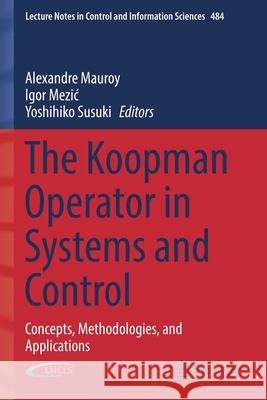The Koopman Operator in Systems and Control: Concepts, Methodologies, and Applications » książka
topmenu
The Koopman Operator in Systems and Control: Concepts, Methodologies, and Applications
ISBN-13: 9783030357153 / Angielski / Miękka / 2021 / 556 str.
The Koopman Operator in Systems and Control: Concepts, Methodologies, and Applications
ISBN-13: 9783030357153 / Angielski / Miękka / 2021 / 556 str.
cena 644,07
(netto: 613,40 VAT: 5%)
Najniższa cena z 30 dni: 616,85
(netto: 613,40 VAT: 5%)
Najniższa cena z 30 dni: 616,85
Termin realizacji zamówienia:
ok. 16-18 dni roboczych.
ok. 16-18 dni roboczych.
Darmowa dostawa!
Kategorie:
Kategorie BISAC:
Wydawca:
Springer
Seria wydawnicza:
Język:
Angielski
ISBN-13:
9783030357153
Rok wydania:
2021
Wydanie:
2020
Numer serii:
000034709
Ilość stron:
556
Waga:
0.80 kg
Wymiary:
23.39 x 15.6 x 3.0
Oprawa:
Miękka
Wolumenów:
01
Dodatkowe informacje:
Wydanie ilustrowane











